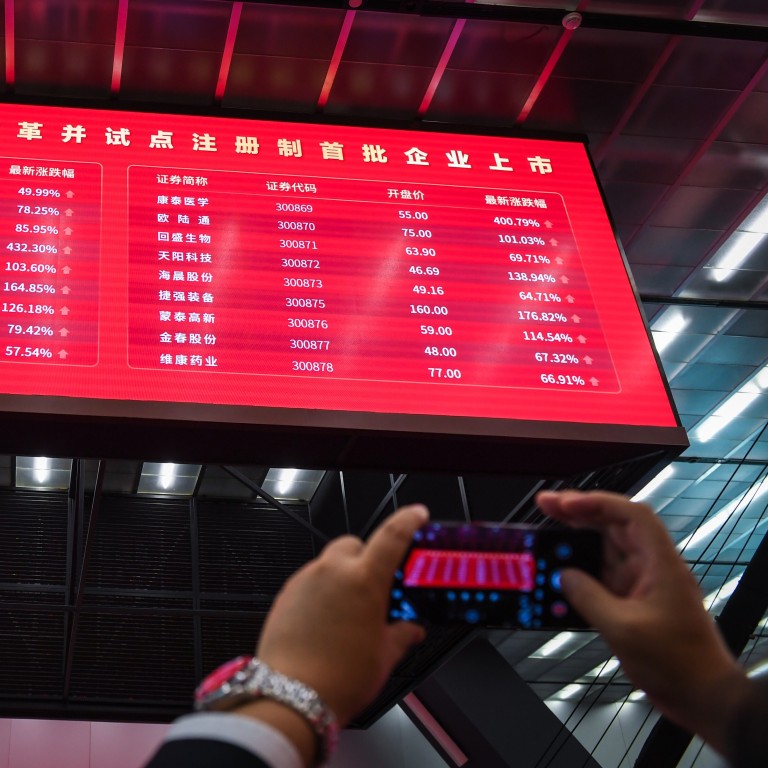
China’s crackdown on its internet giants fuels demand for its onshore tech stocks
- Technology stocks have largely been shielded from Beijing’s clampdown, as they are engaged in businesses that are underpinned by policy support
- Cut in banks’ reserve requirement ratio may further aid Chinese technology stocks trading onshore, according to brokerages
China’s waves of crackdown against its biggest internet companies are fuelling demand for technology stocks – a group that has so far remained untouched by the regulatory storm – in its onshore markets.
Traders have been turning to onshore listed technology companies as an alternative to the fast-growing part of the economy represented by Alibaba and Tencent. One advantage is that the technology stocks have largely been shielded from Beijing’s clampdown, which is targeting monopolistic practices and cybersecurity, as they are engaged in businesses ranging from new energy to chip making and electronics that are underpinned by policy support.
The ChiNext and Star Market “are benefiting”, said Hong Hao, managing director with Bocom International Holdings in Hong Kong. “The names trading there are not available in Hong Kong or overseas. And these names are part of the key ‘hardware manufacturing’ strategy going forward,” he said.
This euphoria has to some extent come at the cost of Chinese technology stocks trading overseas. Mainland traders have turned sellers from buyers since the Didi Global episode deepened worries that Beijing’s heightened scrutiny of these internet juggernauts was far from over. They have sold a combined HK$19.1 billion yuan (US$2.5 billion) of Hong Kong stocks through the exchange link with the city this month, according to Bloomberg data.
The Hang Seng Tech Index has lost almost a third of its values since its February peak, wiping out more than US$600 billion from the market capitalisation – or more than Thailand’s entire market.
A move by China’s central bank to lower the reserve requirement ratio (RRR) on July 9 may further widen the performance divergence between Chinese technology stocks trading onshore and overseas, according to brokerages such as CSC Financial. While the regulatory scrutiny still weighs on Hong Kong-listed giants, their peers on the ChiNext and Star Market will be exposed to more funds chasing momentum.
“The RRR cut means a loosening of monetary policies,” said Zhang Yulong, an analyst at CSC Financial. “That will allay market concern about liquidity and reinforce the view that growth stocks will be the top allocation.”
Alibaba owns the South China Morning Post.

